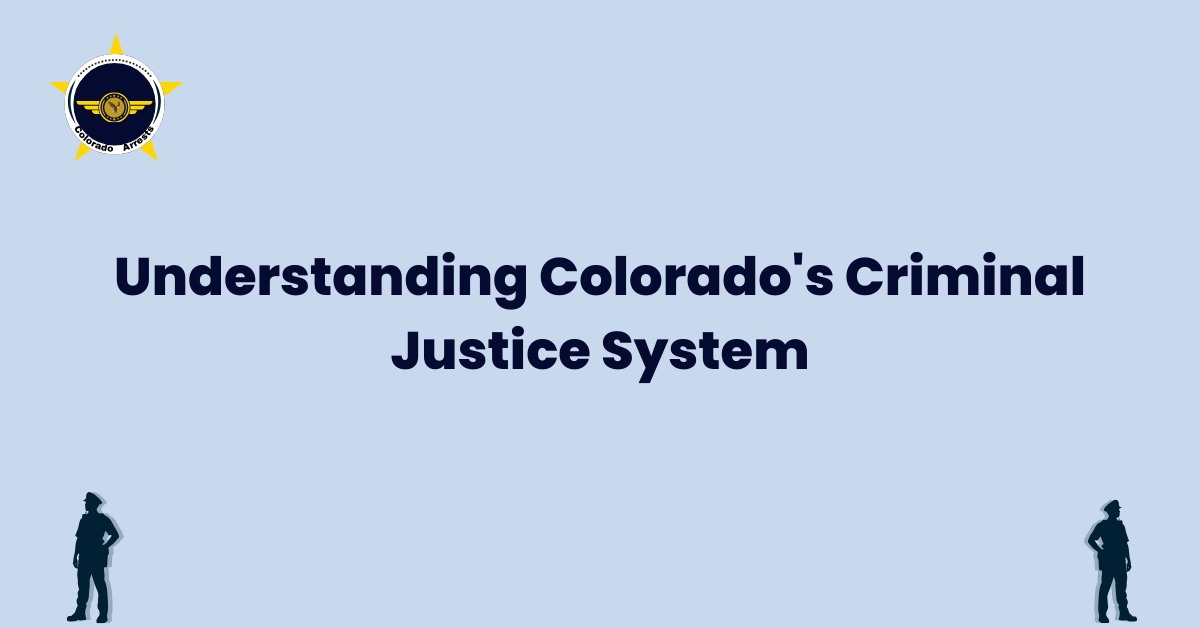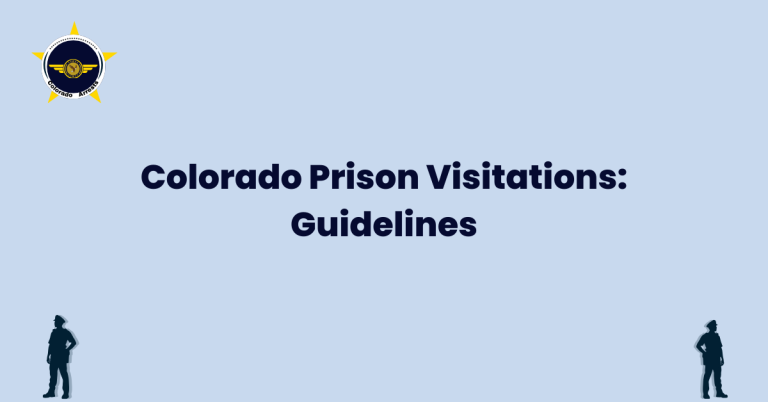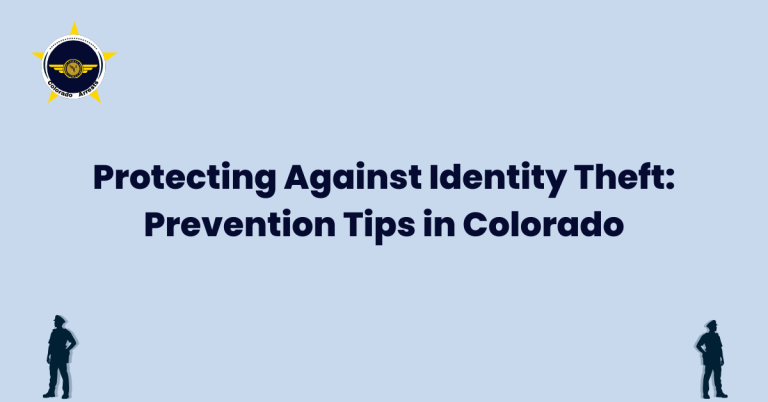Understanding Colorado’s Criminal Justice System
Colorado’s Criminal Justice System is a complex and intricate network of laws, procedures, and institutions designed to maintain law and order within the state. With a deep rooted commitment to justice, Colorado has established a comprehensive system that ensures the fair treatment of individuals involved in criminal cases.
From the moment a crime is committed to the final resolution in court, Colorado’s Criminal Justice System works tirelessly to protect the rights of both victims and defendants. The system encompasses various components, including law enforcement agencies, prosecutors, defense attorneys, judges, and correctional facilities, all working together to ensure a fair and just process.
The Role of Law Enforcement Agencies in Colorado’s Criminal Justice System
Law enforcement agencies play a crucial role in Colorado’s Criminal Justice System. These agencies, including local police departments, sheriff’s offices, and state troopers, are responsible for maintaining public safety and enforcing the laws of the state. Their primary objective is to prevent crime and apprehend individuals who have violated the law.
By patrolling the streets, responding to emergency calls, and conducting thorough investigations, law enforcement agencies gather evidence and build cases against alleged offenders. This evidence is then passed on to prosecutors, who will determine whether to pursue charges.
The Important Role of Prosecutors
Prosecutors play a vital role in Colorado’s Criminal Justice System. These legal professionals, who are typically employed by the district attorney’s office, are responsible for representing the state in criminal cases. Their main objective is to seek justice by proving the guilt of the accused beyond a reasonable doubt.
Prosecutors carefully review the evidence provided by law enforcement agencies and decide whether to file charges. They then present the case in court, calling witnesses, introducing evidence, and presenting arguments to convince the judge or jury of the defendant’s guilt. It is their duty to ensure that the rights of victims are protected and that justice is served.
The Crucial Role of Defense Attorneys
Defense attorneys are an essential component of Colorado’s Criminal Justice System. Their role is to advocate for the accused, ensuring that their rights are protected throughout the legal process. Defense attorneys provide legal representation, advise their clients on the best course of action, and work tirelessly to build a strong defense strategy.
These legal professionals review the evidence presented by the prosecution, investigate the case independently, and challenge the prosecution’s arguments in court. Their objective is to create reasonable doubt in the minds of the judge or jury and secure a favorable outcome for their clients.
The Importance of Judges in the Criminal Justice System
Judges play a crucial role in Colorado’s Criminal Justice System. These impartial decision makers are responsible for ensuring that the legal process is fair and that justice is served. Judges oversee criminal trials, ensuring that both the prosecution and defense adhere to the rules of procedure and evidence.
During a trial, judges make crucial decisions, such as ruling on the admissibility of evidence, instructing the jury on the law, and ultimately, determining the sentence if the defendant is found guilty. Their role is to provide a neutral and unbiased perspective, ensuring that the rights of all parties involved are respected.
The Significance of Correctional Facilities in the Criminal Justice System
Correctional facilities, such as prisons and jails, play a vital role in Colorado’s Criminal Justice System. These institutions are responsible for the custody, care, and rehabilitation of individuals who have been convicted of crimes.
Once a defendant is found guilty, judges may impose a sentence that includes incarceration in a correctional facility. These facilities aim to rehabilitate offenders and reintegrate them into society upon their release. They provide educational programs, vocational training, and counseling services to help individuals address the underlying causes of their criminal behavior and make positive changes in their lives.
FAQs
What is the role of law enforcement agencies in Colorado’s Criminal Justice System?
In Colorado’s Criminal Justice System, law enforcement agencies play a crucial role in maintaining public safety and enforcing the law. They are responsible for investigating crimes, apprehending suspects, and gathering evidence to build a case against the accused.
How do prosecutors contribute to the Criminal Justice System in Colorado?
Prosecutors in Colorado’s Criminal Justice System are responsible for representing the state in court and presenting evidence against the accused. They evaluate the strength of the case, negotiate plea bargains, and seek justice for victims while ensuring the rights of the defendants are protected.
What is the significance of defense attorneys in Colorado’s Criminal Justice System?
Defense attorneys in Colorado’s Criminal Justice System advocate for the accused and ensure their rights are protected throughout the legal process. They investigate the case, challenge the evidence presented by the prosecution, and provide a strong defense strategy to achieve a fair outcome for their clients.
How do judges contribute to the fair and just process in Colorado’s Criminal Justice System?
Judges in Colorado’s Criminal Justice System oversee the legal proceedings, ensuring that all parties are treated fairly and that the law is upheld. They make decisions on bail, preside over trials, and ensure that the rights of both the victims and defendants are respected.
What role do correctional facilities play in Colorado’s Criminal Justice System?
Correctional facilities in Colorado’s Criminal Justice System are responsible for the custody, care, and rehabilitation of individuals convicted of crimes. They aim to protect society by providing a secure environment while offering programs and services to help offenders reintegrate into society successfully.
How does Colorado’s Criminal Justice System protect the rights of victims?
Colorado’s Criminal Justice System is committed to protecting the rights of victims throughout the legal process. This includes providing support services, keeping victims informed about the progress of their cases, and ensuring their voices are heard during court proceedings.
Colorado’s Criminal Justice System is a comprehensive network of laws, procedures, and institutions that work together to maintain law and order in the state. With a focus on fairness and justice, it ensures that all individuals involved in criminal cases are treated with respect and their rights are protected.
Conclusion A Collaborative Effort for Justice
Colorado’s Criminal Justice System is a complex network of laws, procedures, and institutions that work together to maintain law and order in the state. From the initial response of law enforcement agencies to the final resolution in court, every component plays a vital role in ensuring a fair and just process for all individuals involved.
By understanding the roles of law enforcement agencies, prosecutors, defense attorneys, judges, and correctional facilities, we gain insight into the intricate workings of the system. It is through this collaborative effort that Colorado strives to protect the rights of victims, provide fair treatment for defendants, and uphold the principles of justice.







